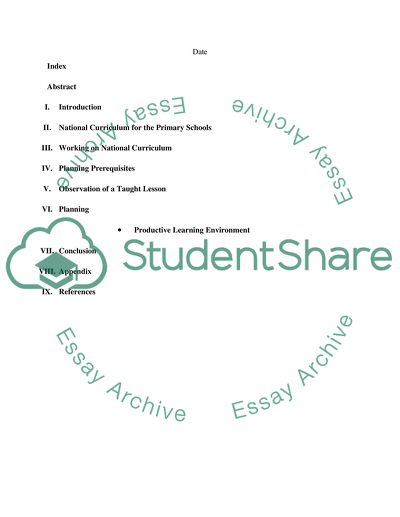Cite this document
(National Curriculum for the Primary Schools Dissertation, n.d.)
National Curriculum for the Primary Schools Dissertation. Retrieved from https://studentshare.org/education/1703031-observe-a-taught-lesson-in-a-foundation-subject-identify-the-aspects-of-planning-and-preparation-that-ensured-that-this-was-a-productive-learning-enviroment
National Curriculum for the Primary Schools Dissertation. Retrieved from https://studentshare.org/education/1703031-observe-a-taught-lesson-in-a-foundation-subject-identify-the-aspects-of-planning-and-preparation-that-ensured-that-this-was-a-productive-learning-enviroment
(National Curriculum for the Primary Schools Dissertation)
National Curriculum for the Primary Schools Dissertation. https://studentshare.org/education/1703031-observe-a-taught-lesson-in-a-foundation-subject-identify-the-aspects-of-planning-and-preparation-that-ensured-that-this-was-a-productive-learning-enviroment.
National Curriculum for the Primary Schools Dissertation. https://studentshare.org/education/1703031-observe-a-taught-lesson-in-a-foundation-subject-identify-the-aspects-of-planning-and-preparation-that-ensured-that-this-was-a-productive-learning-enviroment.
“National Curriculum for the Primary Schools Dissertation”, n.d. https://studentshare.org/education/1703031-observe-a-taught-lesson-in-a-foundation-subject-identify-the-aspects-of-planning-and-preparation-that-ensured-that-this-was-a-productive-learning-enviroment.


